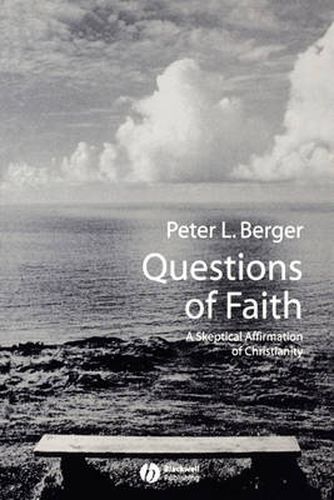Readings Newsletter
Become a Readings Member to make your shopping experience even easier.
Sign in or sign up for free!
You’re not far away from qualifying for FREE standard shipping within Australia
You’ve qualified for FREE standard shipping within Australia
The cart is loading…






Does God exist? What was so special about Jesus? How can one be Christian in a pluralistic society? These are among the fundamental questions addressed by leading religious and cultural commentator, Peter Berger, in this engaging exploration of faith in modern times. The book is structured around key phrases from the Apostles’ Creed, which the author uses to explore the basics of Christian belief. Drawing on both the Christian theological tradition and the work of other relevant thinkers from Freud through to Simone Weil, he negotiates between traditional and modern, liberal and orthodox views. Throughout the book, Berger takes the position of an open-minded skeptic, not bound by any traditional authority, be it church, scripture, or personal experience. At the same time he explores his own beliefs, indicating why, in the end, he does have faith.
$9.00 standard shipping within Australia
FREE standard shipping within Australia for orders over $100.00
Express & International shipping calculated at checkout
Does God exist? What was so special about Jesus? How can one be Christian in a pluralistic society? These are among the fundamental questions addressed by leading religious and cultural commentator, Peter Berger, in this engaging exploration of faith in modern times. The book is structured around key phrases from the Apostles’ Creed, which the author uses to explore the basics of Christian belief. Drawing on both the Christian theological tradition and the work of other relevant thinkers from Freud through to Simone Weil, he negotiates between traditional and modern, liberal and orthodox views. Throughout the book, Berger takes the position of an open-minded skeptic, not bound by any traditional authority, be it church, scripture, or personal experience. At the same time he explores his own beliefs, indicating why, in the end, he does have faith.